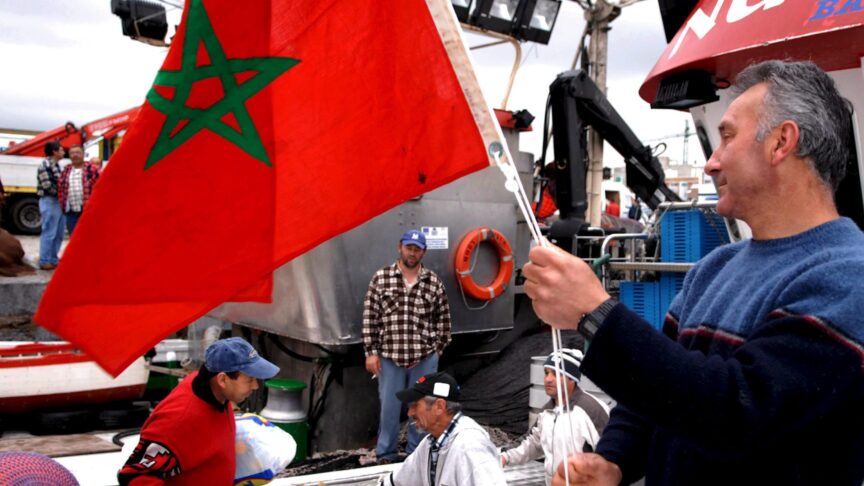Not only a pawn in their game
The war in Yemen has its own domestic logic, independent of the Saudi-Iranian ‘cold war’.
Visiting the city of Marib in central Yemen earlier this month, it was for a moment possible to forget that Yemen is embroiled in a devastating civil war. Streets bustled with commerce and construction; a newly inaugurated university was bursting with students; a steady stream of officials and businessmen from across the country have relocated to what was once a backwater; and the province’s administrative system has been energized under the leadership of the powerful and charismatic governor of Marib, Sheikh Sultan al-Arada.
Yet even in this comparative oasis of calm, signs of the conflict are far from absent. Posters proclaiming the martyrdom of slain soldiers and military leaders are a common reminder of the active fronts in nearby Nihm and Sirwah. Half-completed buildings host IDPs, whose numbers have caused the city’s once modest population to expand significantly. The governorate’s thousand-year-old ruins – among the most historically significant in the Arabian Peninsula – lie unguarded and riddled with garbage and graffiti. And the provincial capital’s main hospital still bears the pockmarks of Houthi shelling during the battle for the city in 2015.
The challenges facing Marib – now one of Yemen’s most stable governorates – underlines the dire situation across the country. More than three years after the Houthis took over Sanaa, prompting a Saudi-led military operation to dislodge them, Yemen is trapped in a seemingly inexorable cycle of conflict. Peace talks stalled more than a year ago. The political divide only deepens. Yemen’s economy and infrastructure are in tatters, replaced by an increasingly entrenched war economy that has only served to enrich corrupt combatants as the bulk of Yemenis grow more impoverished. All the while, the nation’s social fabric is falling apart.
Over the past month, things have gotten worse. A missile launched by the Iran-aligned Houthis at Riyadh provoked the Saudi-led coalition to shut the country’s air, sea and land borders and launch a barrage of airstrikes on alleged Houthi targets. The latter has already led to dozens of civilian casualties, while the former will exacerbate the country’s dire humanitarian crisis by further restricting the influx of desperately needed food, water, fuel, and medical supplies.
Meanwhile, the Houthis and their allies continue to besiege the central city of Taiz, and the international community remains an impotent bystander.
In most media analysis, the deterioration has been linked to the escalation in the Middle East’s regional “cold war” between Iran and Saudi Arabia. But the Houthis and their allies had their own reasons for launching a missile at Riyadh, describing it as retaliation for recent airstrikes in northern Yemen. This is not to dismiss the Iranian government’s role in bolstering the Houthis, but robbing the situation of its local context is a recipe for misunderstanding and unproductive escalation.
There is little question that a political solution to the conflict must remain the key focus of international actors working on Yemen. Every day the conflict continues, Yemen grows poorer and more divided. The current political vacuum only serves to empower those seeking to extend the conflict while making a peace settlement even more difficult to achieve. It is therefore crucial that key actors coordinate and put pressure on the warring parties in order to return them to the negotiating table.
In the meantime, while the political process remains moribund, track two talks should still be supported. Particular emphasis should be placed on bringing currently marginalized groups – including Southern Secessionists, tribal groupings, women, youth and civil society – into both the peace process and the drafting of a post-war settlement..
These forums present opportunities for representatives of warring sides to build on positions of common ground and reach agreements—limited though they may be—in line with their mutual interests. This is something that Europe, as an actor viewed positively by all sides in the conflict, is uniquely able to facilitate.
Simultaneously, the diversity of the state of conflict in different parts of the country must be taken into account. While the war continues to affect the whole of the country in some form, Marib and some other parts of Yemen have now entered a post-conflict stage. Reconstruction, capacity building and development aid could go a long way not only in benefitting the lives of inhabitants, but also in building trust and leverage with key local actors – commodities which are in short supply in Yemen these days.
The European Council on Foreign Relations does not take collective positions. ECFR publications only represent the views of their individual authors.


